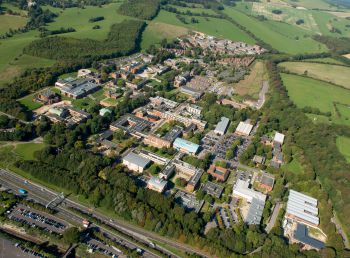Sussex retains its position as a champion of social mobility
By: Tom Walters
Last updated: Thursday, 24 August 2017

The University of Sussex has retained its position as one of the most committed institutions in the UK towards helping students from all backgrounds access a university education.
Compared to other multi-faculty universities, Sussex is once again second only to Oxford in the South East region and sixth in the whole of the UK in terms of the amount of money it commits towards widening participation.
Sussex’s award-winning* approach towards widening participation has seen the University develop new ways of attracting students from a diverse range of backgrounds, with programmes delivered for pupils as young as ten to build aspiration at the earliest possible age. On applying to Sussex, qualifying students from lower income families can benefit from one of the most generous packages of financial support in the UK, alongside comprehensive progression and retention programmes.
The Office of Fair Access (OFFA) has today published its report that outlines how higher education institutions are approaching the support they offer to students from disadvantaged backgrounds, placing a particular emphasis on raising aspiration and attainment in schools.
Commented Professor Clare Mackie, Pro-Vice-Chancellor for Teaching & Learning: “We are proud that Sussex is a university that not only strives to make a difference to people’s lives, but is actually making that a reality.
"With a commitment to social mobility sitting at the very heart of the University, we are continuously looking at how we can develop new and creative ways to raise aspiration with talented young students from all backgrounds.
"We continue to offer some of the most generous financial packages of scholarships in the UK and, importantly, throughout their time at Sussex qualifying students are encouraged to participate in schemes such as international internships and summer schools to progress them even further and retain their motivation.
"The results these students gain, continue to prove our approach works.”
In 2015, 1,623 UK students graduated from Sussex, of whom 700 were the first cohort of students who had received a means-tested scholarship, known as Sussex’s First Generation Scholarship scheme. 93% of the 700 graduates received a good degree, compared to 85% for UK students not eligible for the scheme.
Building aspiration and attainment
For several years the University of Sussex has taken a comprehensive approach to the whole lifecycle of a student’s progression to University and beyond. In its latest agreement with OFFA, Sussex has outlined how it intends to enhance this activity even further, with programmes beginning with Key Stage 2 primary school pupils from age ten.
A particular highlight is the Making Choices programme developed for Years 8 & 9 where nearly 300 schoolchildren from across Sussex complete a six-month programme designed to give them a taste of university life and guide them towards a bright future. The programme sees pupils building robots, staging mock court trials, making adverts, and using DNA to solve pretend crimes. The programme culminates in a special graduation complete with gowns and mortarboards, with parents invited to attend the ceremony.
A range of residential and non-residential summer schools for Years 10–12 are aimed at engaging GCSE and A Level students in subjects they could study in higher education involving academic staff and students as ambassadors, mentors and tutors.
In addition, the University has formed long-term partnerships with organisations such as Villiers Park Educational Trust working with students on a ‘stretching’ programme that aims to help them attain higher GCSE and A Level grades. Sussex also participates in the national Realising Opportunities programme, where academics provide mentoring support to students from underrepresented groups on assignments, giving them the chance to explore an aspect of their studies in more detail.
Succeeding at university and beyond
First Generation Scholar students who qualify for means-tested financial support can also access work shadowing in their first year. Between years 2 and 3, students participate in a range of home and overseas internships, research or study options. These fully funded opportunities include an international summer school on campus or overseas; a Junior Research Associate Scheme for 4 or 8 weeks, working on a research project at home or overseas; a 4- or 8-week overseas work internship as part of a British Council China Scheme; or a 10-week UK work internship, drawing on opportunities from across the whole UK.
